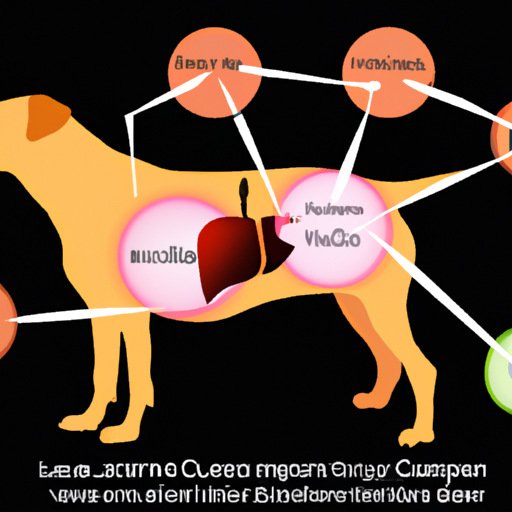Understanding Liver Cancer in Dogs
Dear Caregiver, you must know that liver cancer in dogs can be a terrifying diagnosis to face. As a guardian and protector of your furry friend, understanding the causes of this disease can help you make informed decisions about their health and well-being. The liver, a vital organ in your dog’s body, performs multiple functions, including detoxification, protein synthesis, and digestion. When cancerous cells invade this organ, it disrupts these vital functions, leading to various health complications.
The Different Causes of Liver Cancer in Dogs
Liver cancer in dogs can be primary or secondary.
-
Primary liver cancer originates in the liver itself. Although the exact cause of primary liver cancer is unknown, several factors may contribute to its development. These include:
- Age: Older dogs are more likely to develop liver cancer.
- Breed: Certain breeds, such as Doberman Pinschers and West Highland White Terriers, have a higher predisposition.
- Chronic liver disease: Conditions like hepatitis can increase the risk of liver cancer.
-
Secondary liver cancer occurs when cancer from another part of the body metastasizes to the liver. The common causes for this include:
- Spread of cancer: If your dog has cancer elsewhere in their body, there is a high likelihood it can spread to the liver.
Here’s a table to illustrate the differences:
| Type of Liver Cancer | Causes |
|---|---|
| Primary Liver Cancer | Age, Breed, Chronic liver disease |
| Secondary Liver Cancer | Spread of cancer from other body parts |
Symptoms to Look Out For
As your dog’s caregiver, you need to be aware of the possible symptoms of liver cancer. Your dog might exhibit:
- Lethargy or depression
- Loss of appetite
- Unexplained weight loss
- Jaundice (yellowing of the skin and eyes)
- Enlarged abdomen
If you notice any of these symptoms, it’s crucial to take your dog to the vet immediately for a comprehensive examination.
Prevention and Treatment Options
Although liver cancer in dogs can be challenging to prevent due to its complex nature and multiple causes, certain strategies may reduce the risk. Regular vet check-ups, a balanced diet, and keeping your dog at a healthy weight can contribute to overall health and potentially lower the risk of liver cancer.
The treatment options for liver cancer in dogs include surgery, chemotherapy, and palliative care. The vet will determine the best course of action based on the stage and type of cancer, along with your dog’s overall health.
Coping with Your Dog’s Diagnosis
Coming to terms with your dog’s diagnosis can be overwhelming. Remember, it’s okay to feel a mix of emotions. Reach out to support groups, talk to friends who have faced similar situations, and most importantly, cherish the time you have with your furry friend.
Frequently Asked Questions
Q1: Can liver cancer in dogs be cured?
A: It depends on the stage and type of cancer. Early detection and treatment can lead to a better prognosis.
Q2: How can I prevent liver cancer in my dog?
A: Regular check-ups, maintaining a healthy diet and weight for your dog can potentially reduce the risk.
Q3: Is liver cancer painful for my dog?
A: Your dog may experience discomfort due to symptoms like an enlarged abdomen. Pain management is a key part of treatment.
Q4: Can a dog live with liver cancer?
A: With proper treatment and care, some dogs can live for months to years after a liver cancer diagnosis.
Remember, every dog is unique, and so is their journey with liver cancer. Stay informed, ask questions, and provide the best care you can. Your furry friend is lucky to have you by their side.



